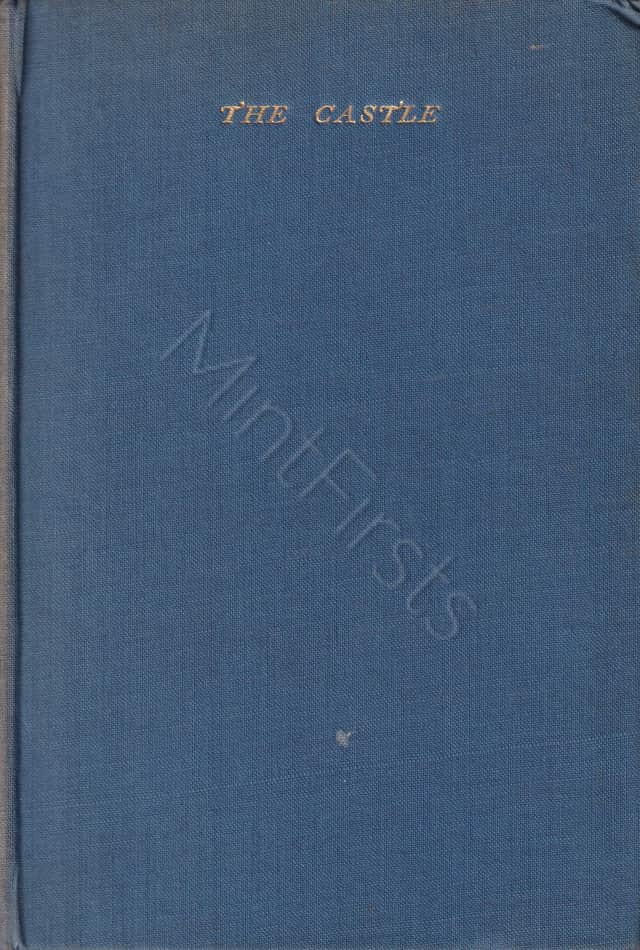Established
2004
Relaunched
2024
Our booksHow we tradeAbout usCredits & thanksYour account
- Home page
- Our books
- How we trade
- About us
- Credits & thanks
- Your account
- Your cart
MENU
The Castle
First edition in English of Franz Kafka's The Castle

Franz Kafka; translated by Edwin Muir and Willa Muir ⦗Willa Anderson⦘
First edition in English. Crown 8vo. Pp. xii, 450, [1]. Blue linen cloth boards, lettered in gilt to spine and front; deckled edges, top-edge stained yellow. Translated by Edwin and Willa Muir, with an eight-page preface by the former and an "Additional Note" by Max Brod. Originally published by Kurt Wolf Verlag, Munich, in 1926, in an edition of fewer than 3,000 copies, the first English edition was issued in no more than 1,000 copies.
Lacking the scarce dustjacket, in a darkened spine, and extremities lightly bruised, the textblock nonetheless is exceptionally clean.
Kafka's last novel, and first to be published in English, was left in a fragmentary and incomplete state and completed by his friend and literary executor, Max Brod. Arriving in a village to take up the post of land surveyor to the mysterious lord of the castle, the character known only as K. finds himself ranged against the might of an overweening state, its labyrinthine bureaucracy, and ultimately man's earthly futility.
Kafka began the composition of the novel on the evening of 27 January 1922, upon his arrival at the mountain sanatorium of Spindlermühle (now in the Czech Republic). He died before he could finish it, and it is questionable whether he intended to do so, had he survived tuberculosis. At one point he told Brod that the novel would conclude with K. being notified upon his deathbed that his "legal claim to live in the village was not valid, yet, taking certain auxiliary circumstances into account, he was permitted to live and work there." However, in a subsequent letter to Brod dated 11 September 1922, he wrote to say that he was giving up on the work he himself considered his greatest conception and would never return to it: "unvollendet, unvollendbar, unpublizierbar" [unfinished, incomplete, unpublishable]. As it is, the book ends in mid-sentence.
Basis for the 1968 film directed by Rudolf Noelte, starring Maximilian Schell, Cordula Trantow, Trudik Daniel and Helmut Qualtinger, and the 1997 Austrian television adaptation by Michael Haneke, with Ulrich Mühe and Susanne Lothar. W. H. Auden likened Kafka to Dante, Shakespeare, and Goethe as the single most important writer of his age.
edition
first in English
format
hardback
scarcity
scarce
publisher
Martin Secker
published in
London
publication year
1930
ISBN
not assigned
height × width
19.5 × 13.5 cm
genre
literary fiction
language
English
binding style
cloth
binding state
original binding
remark
missing jacket
condition
very good
GBP£ 0.00
EUR€ 0.00
USD$ 0.00
ref.U66 Q7R